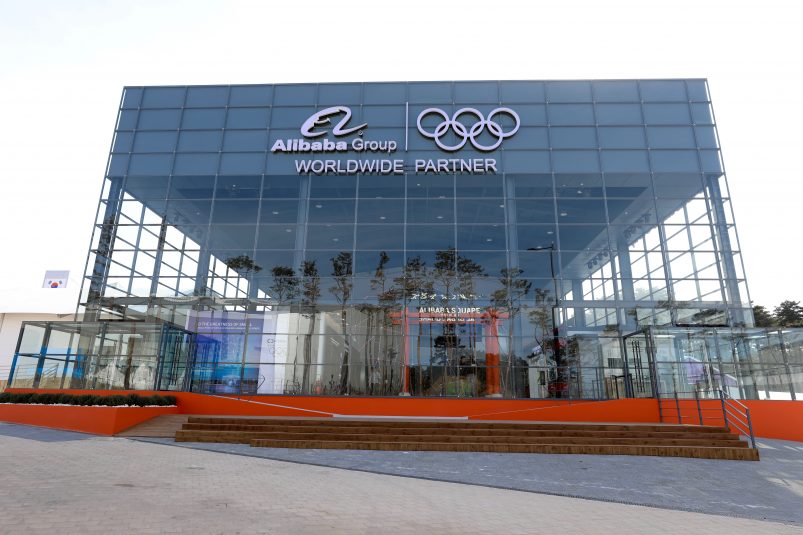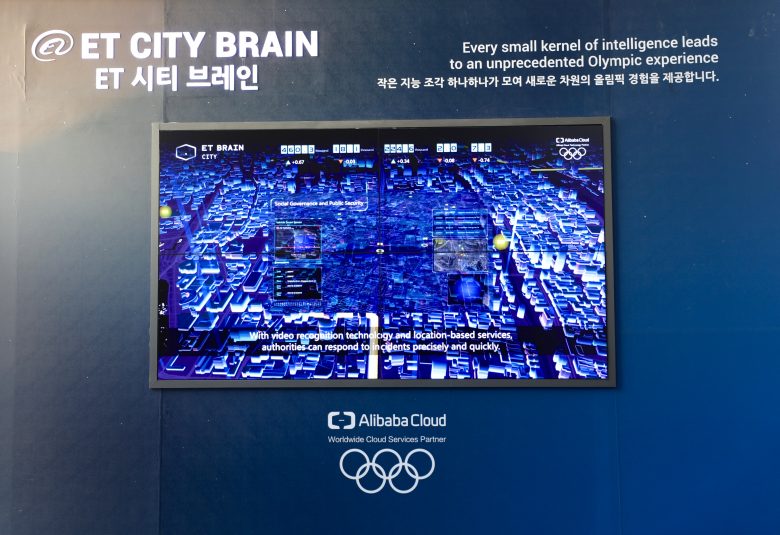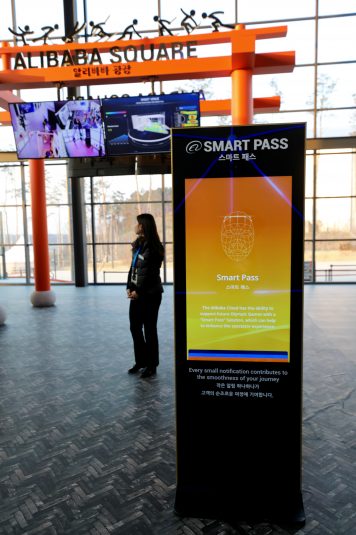Live From PyeongChang: Alibaba Shows How the Cloud Will Transform the Olympic Experience
Showcase at Gangneung Olympic Park demos City Brain, Smart Pass, Smart Venue
Alibaba’s presence as a sponsor of the Olympics began in earnest today and will feature the opening of the Alibaba Olympic Showcase in Gangneung Olympic Park on Feb. 11. But Alibaba Chief Marketing Officer Chris Tung makes it clear that Alibaba’s 12-year deal with the IOC as the e-commerce and cloud-computing sponsor of the Olympics is about more than just branding.

The Alibaba Showcase in Gangneung Olympic Park will give Olympic visitors a chance to see how cloud computing will transform the Olympics.
“This is not a marketing sponsorship where we just wanted the five Olympic rings beside the Alibaba logo,” says Tung. “It’s about really helping transform the Games and enhance the sports industry for the future.”
The theme of Alibaba’s involvement with the Games is “the greatness of small.” Alibaba began as a company that supported small businesses, and the internet has proved to be a great leveler when it comes to smaller companies competing against larger ones. Also, at the Olympics, amateur athletes embody the spirit of competition on a level playing field. And a small piece of data can also lead to great things.
Because the Alibaba partnership with the IOC was announced late last year, the fruits of the relationship are not part of the PyeongChang Olympics. They will be partly in place for the 2020 Tokyo Games, but, in 2022, when Beijing hosts the Winter Games, that vision is expected to be reality.

Alibaba Cloud City Brain could transform the way host cities plan an Olympic Games.
For example, on display at the Olympic Showcase is City Brain, a cloud-based system that relies on massive computing power and data-processing speed to help a city synthesize business decisions. It is currently in use in six cities in China and is set to help the Malaysian government make better decisions with respect to improving traffic flow and emergency response. The hope is for City Brain to be used by host cities to better plan venue and facility locations, Olympics transportation, and more.
“City Brain offers a geographical representation of a city and collects data that can be used for smart urban planning,” Tung explains.

Smart Pass could help potential Games attendees complete travel plans, determine routes, schedule meetings.
Alibaba’s vision for cloud computing also extends from the city to its citizens and visitors. On display at the Showcase is Smart Pass, a system that can bring together data related to Olympic schedules, travel options, and more so that potential visitors to the Games can more easily purchase tickets and complete travel plans. Using facial recognition, the Smart Pass can recommend travel routes, set up meet-and-greet sessions with athletes, and even be integrated with Smart Venue services like heat-mapping technology (on display at the Showcase with the help of Intel computer processing) to recommend the quickest way out of a venue.
“And it’s not just parking or food,” says Tung. “A lot of people take videos and photos at concerts and sporting events, but that ruins the experience of watching the show. But what if you could choose what angle and clip you wanted and then access a professionally done clip?”
The vision is to clearly think beyond just electronic ticketing and to use the cloud to also offer more repeatable workflows from one Games to the next.
“In the cloud era,” says Tung, “this is the way to do things, to use it so that you don’t have to reinvent the wheel. Host cities end up having to invest too much because they are not using cloud systems.”
Alibaba’s plan is to continue to expand its cloud data centers (currently 17 and counting around the globe), continue to serve more than 1 million clients on the cloud, and continue to use cloud computing to post impressive numbers related to e-commerce transactions (last November, the company processed $23.5 billion in sales in one day during Singles Day sales). The goal in the sports business is to reach out to federations, leagues, clubs, and broadcasters and help put the company’s cloud processing punch to good use.
For more of our coverage from the PyeongChang Winter Olympic Games, including interviews, videos, podcasts, and more, visit our SportsTech Live Blog.
